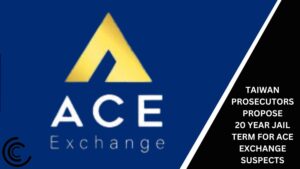Key takeaways :
- Mastercard and Reserve Bank of Australia Successfully Conclude CBDC Trial on Ethereum Blockchain
- The project involved 14 use cases, ranging from retail payments to wholesale settlement and cross-border transactions.
In a fruitful collaboration, Mastercard and the Reserve Bank of Australia (RBA) have concluded a groundbreaking trial focused on the tokenization of central bank digital currencies (CBDCs) across various blockchain platforms.
This innovative concept draws parallels to the concept of wrapped Bitcoin and Ether on the Ethereum blockchain. The primary goal of the trial was to demonstrate the seamless integration of a pilot CBDC into the Ethereum blockchain.
Developed in partnership with Cuscal and Mintable, this solution was a pivotal component of a pilot project initiated by the Reserve Bank of Australia (RBA) and the Digital Finance Cooperative Research Centre (DFCRC). This venture sought to explore potential use cases for a CBDC within the Australian financial landscape, encompassing a diverse range of 14 use cases, including retail payments, wholesale settlement, and cross-border transactions.
Mastercard’s pioneering solution enables CBDCs to be tokenized or ‘wrapped’ on different blockchain networks, including Ethereum, all while preserving the central bank’s control and oversight. This breakthrough empowers consumers to utilize CBDCs for a wide array of commercial activities across various blockchain ecosystems, such as acquiring non-fungible tokens (NFTs) or accessing decentralized applications (DApps).
The project also put to the test how authorized parties, having undergone rigorous know-your-customer (KYC) protocols, could securely hold, employ, and redeem CBDCs. Additionally, the project explored the process of acquiring Ethereum-based NFTs by locking the pilot CBDC and generating an equivalent amount of Ethereum-based wrapped tokens, as outlined in a statement by Mastercard.
Richard Wormald, President of Mastercard’s Australasia division, emphasized the growing demand from consumers to engage in commerce across diverse blockchain platforms, including public blockchains.
He stated, “This technology not only holds the potential to expand consumer choices but also paves the way for collaborative opportunities between public and private networks, with the potential to make a substantial impact in the digital currency arena as the digital economy continues to evolve.”
The procedure entailed locking the necessary amount of pilot CBDC on the RBA’s CBDC platform and generating an equivalent volume of wrapped pilot CBDC tokens on the Ethereum network.
Additionally, this pilot initiative made use of two core elements of the Multi Token Network, introduced by Mastercard in June 2023. This network offered a foundation for enhancing the efficiency of payment and commercial applications through blockchain technology.











